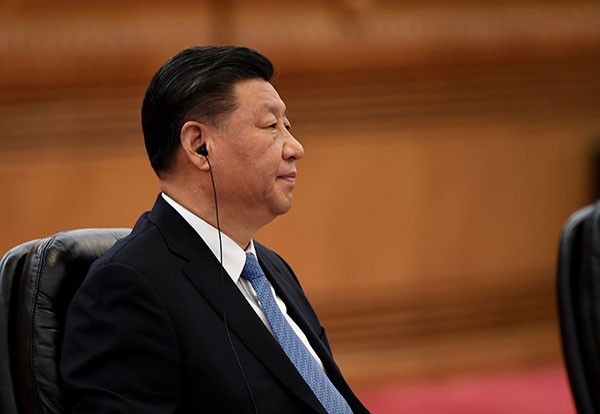Climate policy experts are saying China's President Xi Jinping's call for the world to work together to achieve a green economic recovery in a post-COVID-19 era raises several questions.
They say Xi didn't say how "carbon neutrality" would be defined and if the commitment applied to just carbon dioxide or all greenhouses gas.
However, the European Union has spoken in support of Xi and said it approved of China's promises to tackle climate change. Nevertheless, it insisted China stop construction of coal-fired power stations at home and abroad, reports said.
"I welcome China's ambition to curb emissions and achieve carbon neutrality by 2060," European Commission President Ursula von der Leyen said in a tweet Wednesday after Xi's commitments in a video address to the United Nations General Assembly.
"It's an important step in our fight against climate change under the Paris Agreement. We will work with China on this goal. But a lot of work remains to be done."
Todd Stern, a former U.S. special envoy for climate change, said Xi's announcement "is big and important news - the closer to 2050 the better...His announcement that China will start down this road right away by adopting more vigorous policies is also welcome," Stern said. "Simply peaking emissions 'before 2030' won't be enough to put China on the rapid path needed for carbon neutrality - but overall this is a very encouraging step."
Richard Black, director of the Energy and Climate Intelligence Unit, a UK-based research group, said Xi's words were "a major fillip for the EU - whose leaders recently encouraged Xi to take these steps as part of a joint push on lowering emissions.
Xi encouraged all countries to pursue innovative, coordinated, green and open development for all. Countries must achieve a green recovery of the world economy in the post-COVID era by employing the scientific and technological revolutions and industrial transformation.
"Humankind can no longer afford to ignore the repeated warnings of nature and go down the beaten path of extracting resources without investing in conservation, pursuing development at the expense of protection and exploiting resources without restoration," Xi said.
The Paris Agreement "outlines the minimum steps to be taken to protect the Earth, our shared homeland, and all countries must take decisive steps to honor this agreement," he said.
The Paris Agreement, which took effect in 2016, sets a long-term temperature goal to keep the increase in worldwide average temperature to below 2 C (3.6 F) above preindustrial levels. It limits the increase to 1.5 C - recognizing this will substantially reduce the risks and effects of climate change. This will be achieved by reducing emissions as soon as possible. China will do it part in achieving a green recovery, Xi said. "We aim to have CO2 emissions peak before 2030 and achieve carbon neutrality before 2060." China previously said it would peak emissions by 2030. It has, however, avoided committing to a long-term goal.






